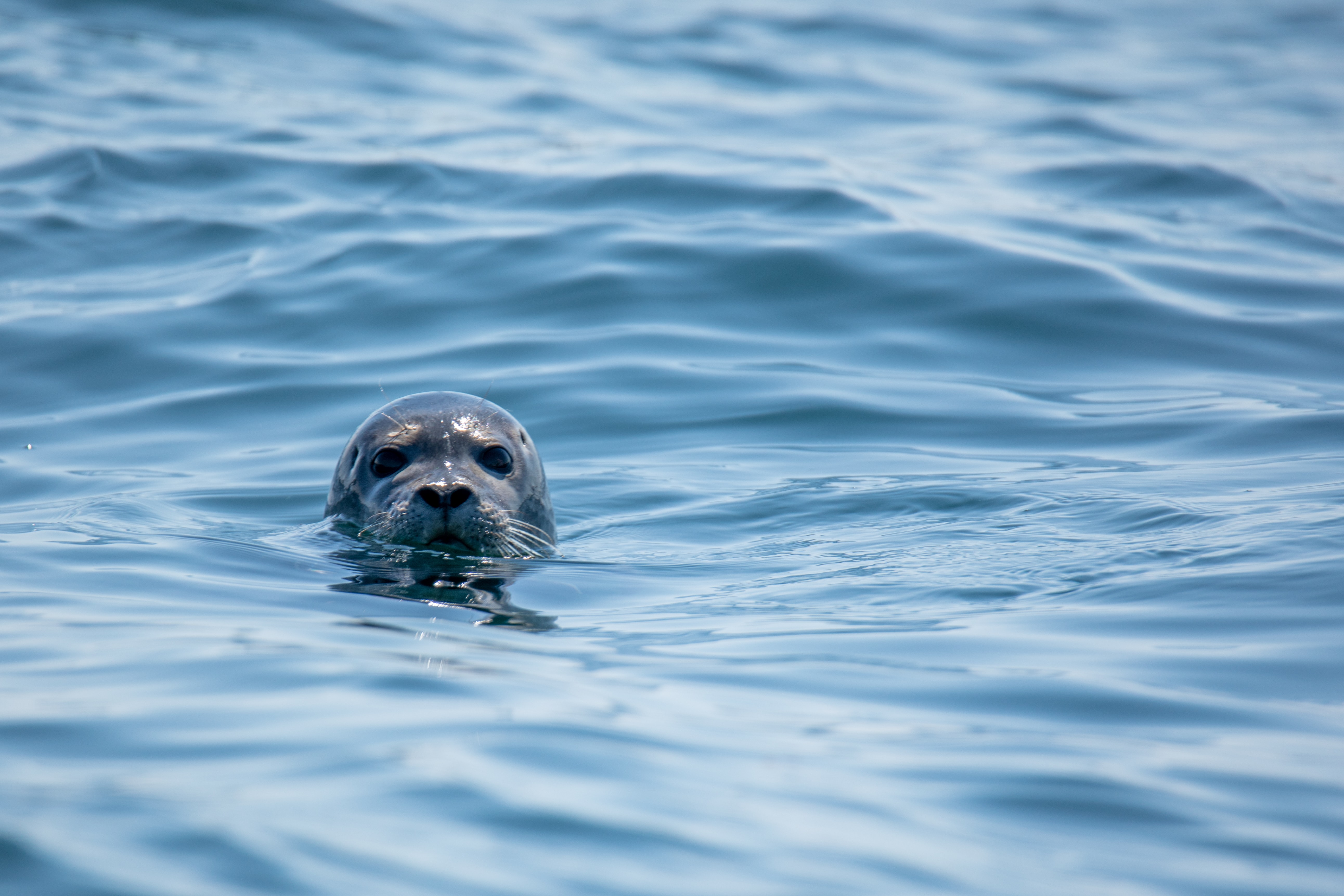 What is avian influenza (bird flu)?
What is avian influenza (bird flu)?
It is a disease (a virus) that can be carried and transmitted mainly between birds. Wild birds, especially waterfowl, are natural carriers of avian influenza viruses. They are not always affected by the disease but can still transmit the virus to other wild birds and vulnerable domestic birds.
 Although the virus circulates mainly between birds, it can also be transmitted from one bird to another animal. A few rare cases of avian flu have been reported in harbor seals in the Lower St. Lawrence region of southern Quebec. These seals would have been contaminated by close contact with many birds that have died or become sick with avian flu, as the two species share the same breeding grounds.
Although the virus circulates mainly between birds, it can also be transmitted from one bird to another animal. A few rare cases of avian flu have been reported in harbor seals in the Lower St. Lawrence region of southern Quebec. These seals would have been contaminated by close contact with many birds that have died or become sick with avian flu, as the two species share the same breeding grounds.
Why is avian influenza (bird flu) in the news?
There is currently an outbreak of a highly pathogenic avian influenza (subtype H5N1) in eastern North America, which is spreading. Ducks and geese are known to be affected by this disease, and with the ongoing spring migration, the virus is spreading northward. Similar to the situations in Nunavut and Labrador, the avian flu virus has been detected in Nunavik birds.
More information can be found here: Highly pathogenic avian influenza - Canada.ca
Can it be transmitted to humans?
The risk for people to catch avian influenza (bird flu) from a bird is very low. It can be a serious disease but there have been no human cases detected in Canada in humans so far. It is not well known how it can be transmitted from birds to humans but probably through secretions, blood and/or feces. If you get very sick after handling wild birds please consult a doctor or a nurse at the clinic.
What are precautions that hunters should take?
It is considered safe to hunt, handle, and eat healthy birds. However, because exposure to avian influenza can occur when handling wild birds, we recommend the following.
- When handling, cleaning game or harvesting eggs:
- Minimize direct contact with blood, feces, and respiratory secretions of all wild birds
- Always work in a well-ventilated environment
- If working outdoors, try to stay upwind of birds to avoid inhaling dust, feathers and aerosols
- Avoid touching your face with unwashed hands
- Wear gloves (for example, vinyl, latex, nitrile, rubber) as much as possible
- Wash hands with soap and warm water immediately after you have finished. If you do not have access to water, use hand sanitizer or wipe with at least 60% alcohol
- Separate clean and dirty eggs during collection and throw away cracked eggs
- Eggs should be dry cleaned only: rub dirt and debris off of eggs with a clean and dry paper towel, cloth, or brush. Washing or soaking eggs with water can affect the eggshell and allow germs to enter the egg
- After you are done with your harvesting activities:
- Thoroughly clean and disinfect tools and work surfaces with soapy water, and then use a household disinfectant
- Remove and change clothing and footwear that may be contaminated with blood, feces or respiratory secretions. When you reach home, wash the contaminated clothes.
Avoid handling dead birds that you haven’t killed or live birds that are acting strangely. Signs that a bird may be sick include nervousness, tremors or lack of coordination, swelling around the head, neck and eyes, lack of energy or movement, coughing, gasping for air or sneezing, diarrhea, or sudden death.
Infected seals will behave or die in an unusual way.
Example of neurological signs caused by avian flu in a bird:
You can find here further information on handling wild birds from the Canadian government, including guidance for hunters: Wild birds and avian influenza – Handling guidelines - Canada.ca
How should we cook or prepare wild birds (ducks, geese)/harvested eggs during while avian influenza is present?
Wild birds and eggs are nutritious.
Fully cooking ducks, geese and eggs reduce the risk of exposure to avian influenza.
According to current knowledge, ptarmigan does not pose an important risk of transmission of avian influenza, but handling precautions are still recommended.
The following recommendation further reduce the risk of disease.
Handling:
- Keeping raw meat separate from other food products to avoid cross contamination
- Washing hands often, including before and after handling raw meat
- Thoroughly cleaning contaminated tools and work surfaces with hot, soapy water and then using a household disinfectant or a solution of 25ml bleach and 2L water
Cooking:
- Cook eggs fully: no runny yolks ;
- Cook meat pieces and cuts thoroughly: no pink flesh.
What to do if I find dead or sick birds?
Do not touch any dead or sick birds. If you wish, you can contact Géraldine Gouin or Peter May at the Nunavik Research Center (819-964-2925) to report the situation.
What to do if I find dead or sick seals?
Do not touch any dead or sick seals. Immediately report the situation to Geraldine Gouin or Peter May (819-964-2925) at the Nunavik Research Centre, as avian flu as not been detected in Nunavik seal’s species.
